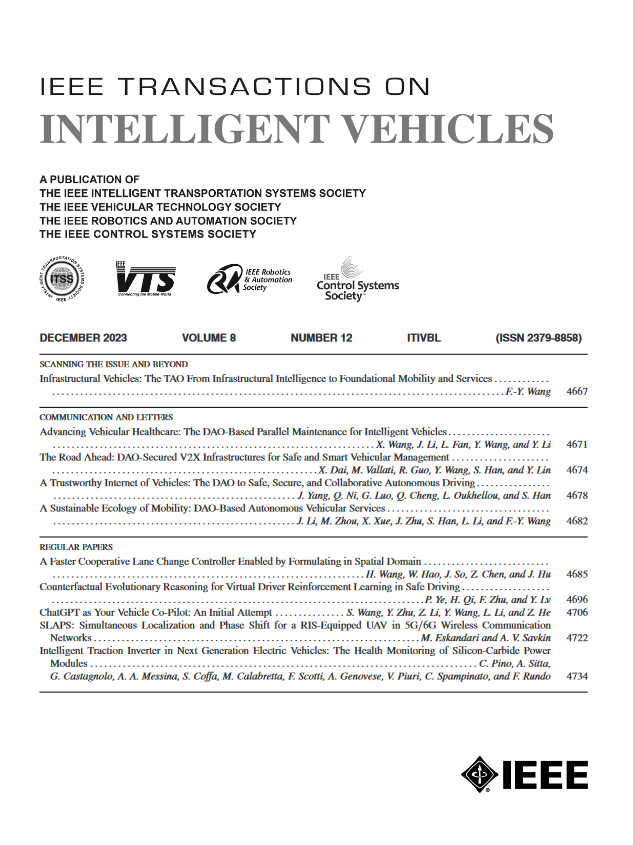考虑温升效应的磁悬浮车垂直动力学RBF-SMC控制策略研究
IF 14.3
1区 工程技术
Q1 COMPUTER SCIENCE, ARTIFICIAL INTELLIGENCE
引用次数: 0
摘要
针对永磁电动轮磁悬浮车系统中导电板温升引起的悬浮力衰减问题,提出了一种结合径向基函数神经网络(RBF-SMC)的自适应滑模控制策略。该方法提高了磁悬浮列车系统的悬浮稳定性和抗干扰能力。首先,建立了四轮动力学模型。然后引入RBF神经网络来观测和减轻温度升高引起的干扰。为了提高系统的静悬浮稳定性,设计了RBF-SMC控制策略。通过仿真和实验验证了该控制策略在不同工况下的有效性。研究结果表明,与传统PID控制策略相比,所提方法的跟踪误差减小了75.2%,补偿了导电板涡流温升引起的悬浮力衰减,抑制了扰动。本文章由计算机程序翻译,如有差异,请以英文原文为准。
Investigation of RBF-SMC Control Strategy for Vertical Dynamics of Maglev Car Considering Temperature Rise Effects
To address the levitation force attenuation in a magnetic levitation (maglev) car with a permanent magnet electrodynamic wheel (PMEDW) system caused by the temperature rise of the conductive plate, this paper proposes an adaptive sliding mode control strategy combined with a Radial Basis Function neural network (RBF-SMC). This approach enhances both the levitation stability and anti-interference capability of the maglev car system. Initially, a four-wheel dynamic model is established. The RBF neural network is then introduced to observe and mitigate disturbances caused by the temperature rise. An RBF-SMC control strategy is designed to improve the system's static levitation stability. The effectiveness of this control strategy is evaluated through simulations and experiments under various operating conditions. The research results indicate that, compared to the traditional PID control strategy, the proposed method reduces tracking error by 75.2%, compensates for the levitation force attenuation caused by the eddy current temperature rise of the conductive plate, and suppresses disturbances.
求助全文
通过发布文献求助,成功后即可免费获取论文全文。
去求助
来源期刊

IEEE Transactions on Intelligent Vehicles
Mathematics-Control and Optimization
CiteScore
12.10
自引率
13.40%
发文量
177
期刊介绍:
The IEEE Transactions on Intelligent Vehicles (T-IV) is a premier platform for publishing peer-reviewed articles that present innovative research concepts, application results, significant theoretical findings, and application case studies in the field of intelligent vehicles. With a particular emphasis on automated vehicles within roadway environments, T-IV aims to raise awareness of pressing research and application challenges.
Our focus is on providing critical information to the intelligent vehicle community, serving as a dissemination vehicle for IEEE ITS Society members and others interested in learning about the state-of-the-art developments and progress in research and applications related to intelligent vehicles. Join us in advancing knowledge and innovation in this dynamic field.
 求助内容:
求助内容: 应助结果提醒方式:
应助结果提醒方式:


